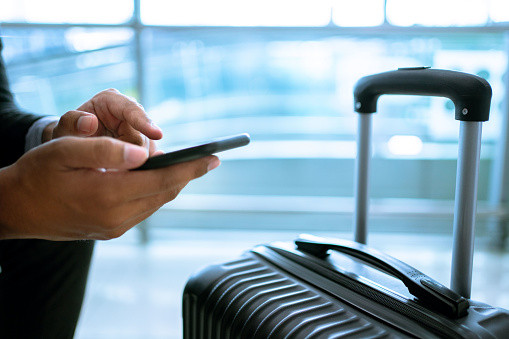How To Protect Your Phone From Hackers At The Airport
With the rise of publicly accessible Wi-Fi networks, criminals have more opportunities to commit cybercrimes. While this facility allows people to access the internet anywhere, anytime, it also makes it easier for criminals to get hold of people's personal information.
It's easy for hackers to monitor your online activity if you're sharing the same network as them. They can steal your username, password, and credit card information. This can be done while you are using social media or shopping online at the airport.
Thieves love to commit digital heists at airports because travelers are often tired, more vulnerable and unaware of their surroundings.
So, next time you travel, follow these pro tips to stay safe on the internet:
Use the official airport WiFi
When you're traveling, it's important to be aware of the dangers of public WiFi. Hackers can easily set-up fake WiFi networks at airports and other public places, and if you connect to one of these networks, they can access your personal information.
The official airport WiFi network is the best way to protect yourself from potential hackers. Even if there is a breach, the airport will be held responsible for any damages or theft. If you're unsure which network is the official one, ask a staff member or look for signs that say, "official airport Wi-Fi." Once connected, check that your device is using a secure connection (https) before entering any sensitive information.
Use a VPN and anti-virus software
If you want to protect your device from hackers, one of the best things you can do is to use a VPN. This will encrypt your traffic and make it much more difficult for hackers to intercept. In addition, you should also use antivirus software to protect your device from malware and other threats.
Enable two-factor authentication
Two-factor authentication is an important security measure that can help protect your devices from hackers. By enabling the feature, you add an extra layer of security to your account login process. This means that even if a hacker manages to obtain your password, they will not be able to access your account. While two-factor authentication can be a bit of a hassle, it is worth the extra effort to protect your online accounts from being hacked.
Avoid public USB charging stations
Public USB charging stations are a convenient way to keep your devices charged while on the go. However, these stations can also be a security risk. Hackers can install malware on these devices that can steal your personal information, such as passwords and credit card numbers. If you must use one, make sure to use a port that is protected by a security system, such as a password or fingerprint.

© Copyright IBTimes 2025. All rights reserved.






















